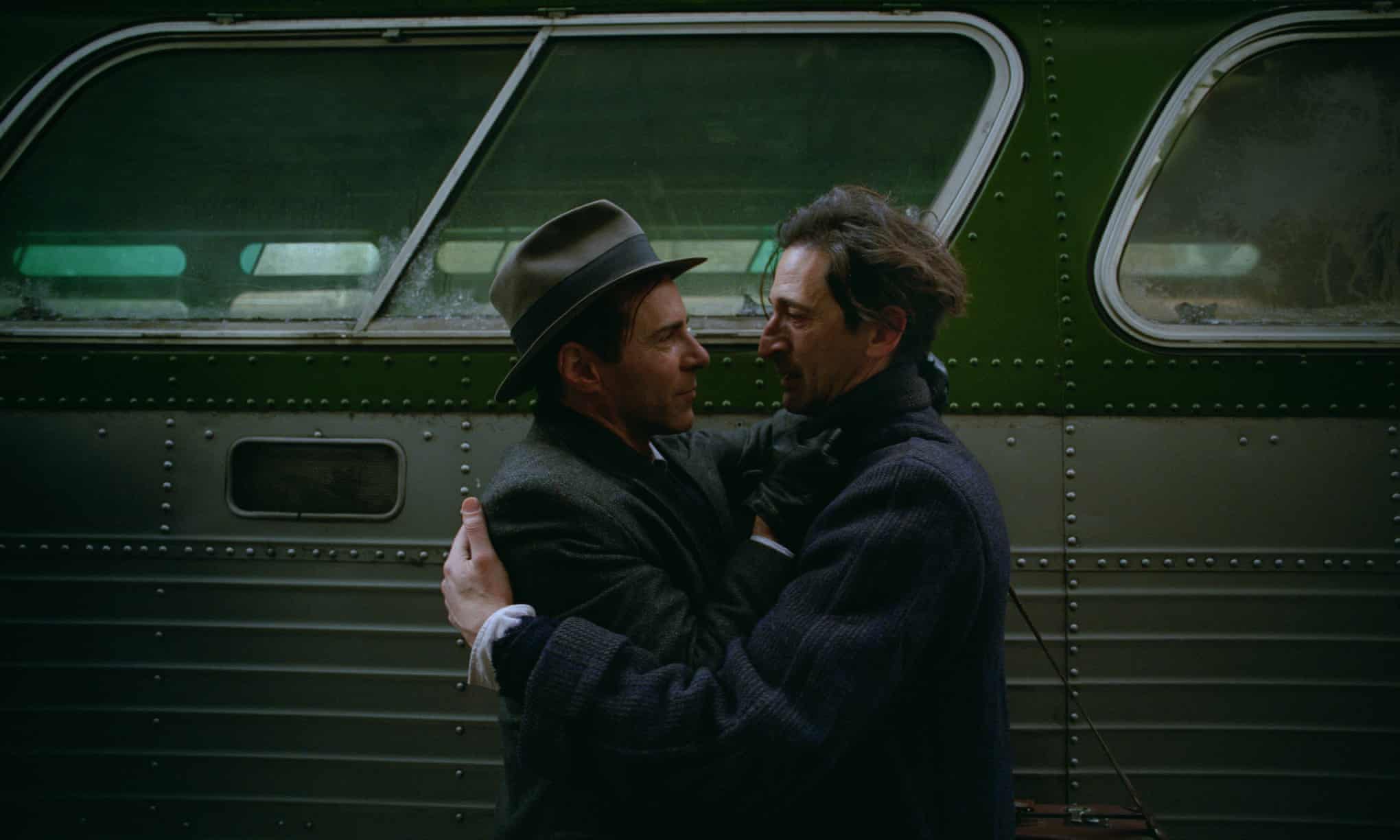"The Brutalist" follows the decades-spanning journey of Lazlo Toth, an accomplished Jewish-Hungarian architect whose career is derailed by the Holocaust. In the aftermath, he gets the fortuitous chance to escape to America, with hopes that his lost wife and niece will eventually join him. After arriving in New York, he ends up in Philadelphia to stay with his cousin Attila, who has completely assimilated into American life. Lazlo is soon put to work in Attila's furniture business, where he is introduced to a wealthy businessman named Harrison Lee Van Buren (Guy Pearce), whose son has commissioned a surprise conversion of his study into a modern library. After some initial friction over the project, Harrison takes a liking to Lazlo and offers him the opportunity of a lifetime. In honor of Harrison's late mother, Lazlo is to oversee the design and construction of a multi-functional community center. But all that glitters is not gold, as this challenging project gradually reveals the darker side of achieving the American Dream.
Indeed, "The Brutalist" delves into the facades of class and benevolence that formed the foundation of post-World War II American society, embodied in Guy Pearce's simultaneously graceful and mercurial portrayal of Harrison. As Lazlo makes a new life for himself under Harrison's patronage, the lingering resentments from the WASP elite - and its aspirants - are always bubbling under the surface, signified through offhand insults, patronizing compliments and subtle body language. And Brody expresses his sense of inner resistance with a palpable air of pride and dignified eloquence, even as he is incrementally wounded under their guise of charity. In fact, Brody's performance and his character arc resonate so deeply and authentically that you may be inclined to research Lazlo Toth on Wikipedia.
Corbet's depiction of Lazlo's troubled immigrant journey evokes classic, sweeping storytelling that feels old-fashioned in the best way. Numerous indelible images punctuate key moments, for example, from the sight of an inverted Statue of Liberty upon arrival to American shores, to tearful reunions at bus and train stations. "The Brutalist" truly understands the power of grand cinematic moments, making good use of its VistaVision cinematography, epic running time, intermission and glorious score to make for an awe-inspiring big screen experience. They really don't make 'em like this anymore.
| Tweet |








No comments:
Post a Comment